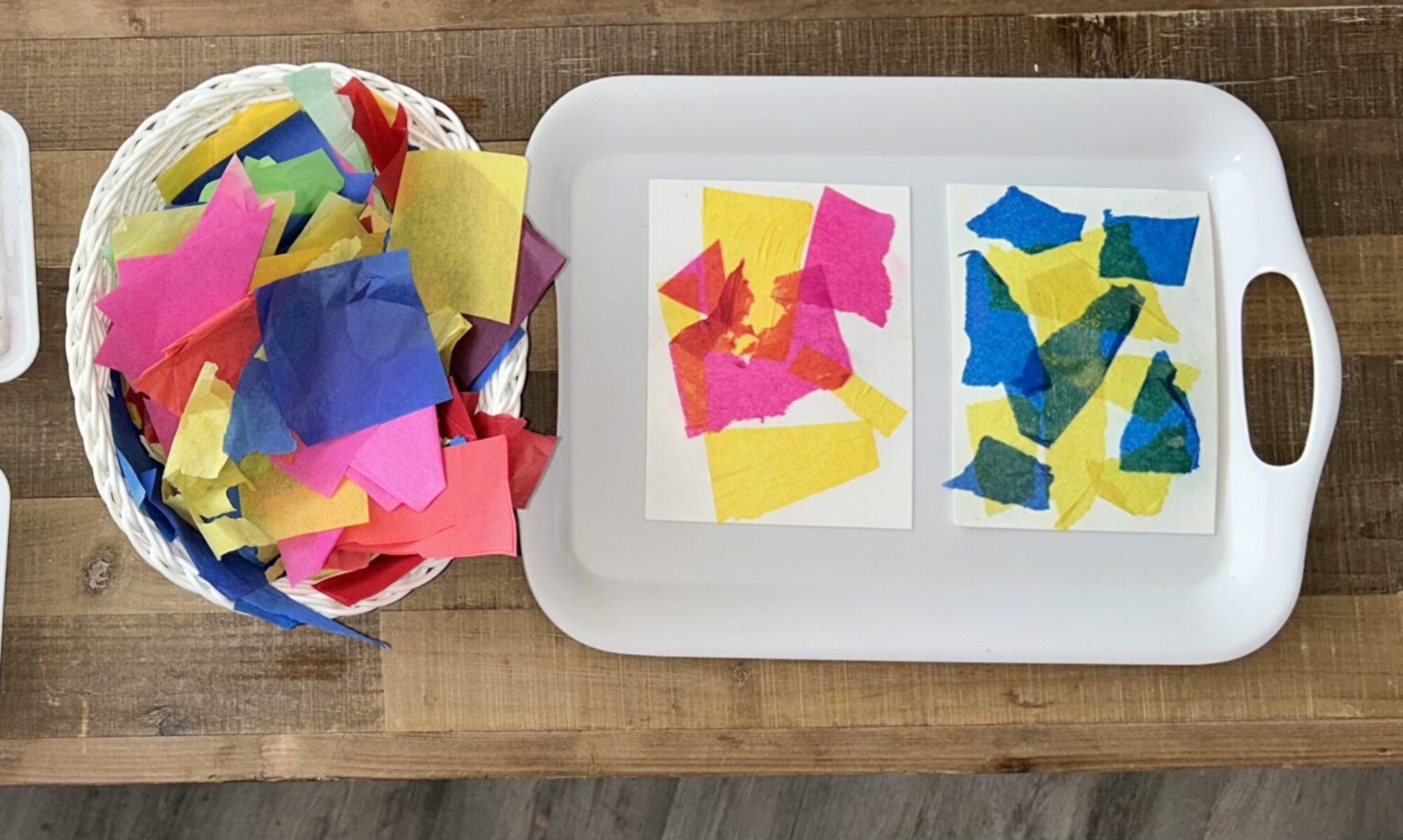
Montessori Toddler Art Activities
For the longest time, teachers of early childhood students have been told, “toddlers can’t learn art.” And based on that misinformation, as well as out-of-date art teaching practices, you might be thinking that’s true too. I’m here to tell you that’s not the case! Toddlers CAN start to learn art! It all comes down to how you teach them. After years of observing art, I’ve developed my very own teaching method that engages and excites young children; it introduces them to art in a way that makes sense to their little developing brains. I want to share some quick ideas on teaching art to toddlers.

Process-Based
Montessori toddler art activities should be process-based only. Discovery and experimentation are key to process art activities for toddlers. Their learning and development of problem solving skills come from spending time making process art. Want to learn more about what Montessori toddler process-based art means? Visit Teaching Process-Based Art in the Montessori Classroom

Montessori toddler art is tactile
Art for toddlers is a very sensorial experience. Visual art learning can happen from direct sensory touching by hands. Tactile art making stimulates learning in different ways than visual or audio learning. For a developing child, tactile exploring can also lead to better fine-motor function and control.
Art Develops Early Motor Movement
In recent years science researchers have established that early motor movement develops better cognitive academic performance in the later grades. Children that practice motor movement early even starting in infancy can directly effect cognitive development and their readiness for learning.

Toddler Safe Art Mediums
Start with safe non-toxic paints, homemade play dough, and safe doodling supplies like crayons and tempera paint sticks. Use only safe non-toxic art supplies for toddlers. Create spill proof environments children can play and spill if needed. I recommend outdoors or rooms with no carpets.
Start with 15 minute art activities toddlers can explore, move to 20 minute segments. Be sure tables are short and children can move around easily. Only introduce 1-to-2 movements, like making a brushstroke, or rolling out clay. Use colorful story books to make connections to art elements. Start with teaching very basic art elements like colors, shape and line.



All rights reserved © 2025, Nature of Art®
No part of this blog may be used or be reproduced in any manner whatsoever including reproducing, publishing, performing, and making any adaptions of the work – including translation into another foreign language without written permission except in the case of brief quotations embodied in critical articles and reviews. Nature of Art® Publishing P.O. Box 443 Solana Beach, California 92075.



